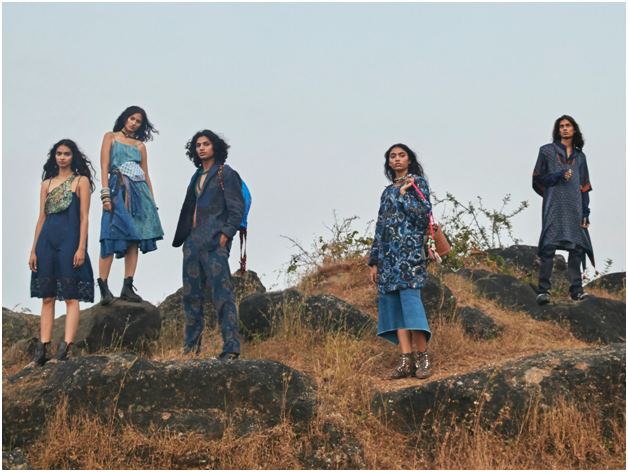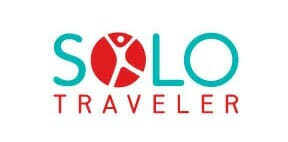Introduction
Sustainable Fashion Brands: Embracing Ethical and Eco-friendly In today’s world, where sustainability and environmental consciousness are becoming increasingly important, the fashion industry has seen a rise in the demand for eco-friendly and ethical clothing options. Sustainable fashion brands are at the forefront of this movement, creating stylish and responsible clothing choices that consider both the planet and the people involved in the production process. This article explores the concept of sustainable fashion and highlights the key aspects of ethical and eco-friendly clothing.

Understanding Sustainable Fashion
-
What is Sustainable Fashion?
Sustainable fashion encompasses the idea of creating clothing and accessories in a way that minimizes negative impacts on the environment and society. It involves considering the entire lifecycle of a product, from sourcing materials to manufacturing, distribution, and even disposal. Sustainable fashion brands prioritize ethical practices, fair trade, and reducing waste, aiming to create a more conscious and responsible industry.
-
The Importance of Sustainable Clothing
Sustainable Fashion Brands: Embracing Ethical and Eco-friendly Sustainable clothing plays a crucial role in reducing the fashion industry’s environmental footprint. Traditional fashion practices often involve harmful manufacturing processes, excessive use of resources, and exploitation of workers. By opting for sustainable clothing, consumers can contribute to a healthier planet by supporting brands that prioritize environmentally friendly practices and prioritize worker well-being.
Ethical Fashion Brands: Promoting Social Responsibility
-
Supporting Fair Trade Fashion
Fair trade fashion emphasizes the importance of fair wages, safe working conditions, and workers’ rights. Brands that support fair trade ensure that their suppliers and manufacturers adhere to these principles. By choosing fair trade fashion, consumers can make a positive impact on the lives of garment workers, promoting social justice and equality.
-
Embracing Socially Responsible Brands
Socially responsible fashion brands go beyond fair trade and take a holistic approach to ethical practices. They consider the environmental impact, workers’ rights, and community development. These brands often engage in philanthropic initiatives and prioritize sustainable sourcing, ensuring that their products align with their values of social responsibility.
Eco-friendly Fashion: Protecting the Environment

-
Organic Textiles for a Greener Future
Organic textiles are produced without the use of harmful chemicals, pesticides, or genetically modified organisms. Organic cotton, for example, is grown using natural methods that maintain soil fertility and biodiversity. Choosing clothing made from organic textiles helps minimize the use of harmful substances and supports a healthier environment.
-
Upcycled Fashion: Reinventing Waste
Upcycled fashion takes discarded materials and transforms them into new, stylish products. By repurposing and upcycling materials, fashion brands reduce waste and breathe new life into old items. Upcycled fashion promotes creativity and resourcefulness while reducing the need for new raw materials.
-
Sustainable Manufacturing Practices
Sustainable fashion brands prioritize responsible manufacturing practices. They focus on energy efficiency, water conservation, and waste reduction. By adopting innovative technologies and eco-friendly processes, these brands aim to minimize their carbon footprint and contribute to a cleaner and greener future.
Transparency and Accountability: The Key to Ethical Fashion
-
The Need for Transparent Supply Chains
Transparent supply chains are essential for ethical fashion brands. By providing visibility into the entire production process, brands can ensure that workers are treated fairly, and environmental standards are upheld. Transparency allows consumers to make informed choices and supports accountability within the fashion industry.
-
Choosing Vegan Fashion for Animal Welfare
Vegan fashion avoids the use of any animal products, including fur, leather, and silk. By opting for vegan clothing, individuals can promote animal welfare and reduce the demand for products that involve animal exploitation. Vegan fashion offers stylish alternatives that align with ethical values.
-
Embracing Sustainable Fashion Initiatives

Sustainable fashion initiatives, such as certifications and industry collaborations, play a significant role in driving positive change. Certifications like GOTS (Global Organic Textile Standard) and B Corp ensure that brands meet strict criteria for sustainability and social responsibility. Collaborations between brands, organizations, and consumers foster innovation and collective action.
The Circular Fashion Economy: Closing the Loop
-
Shifting Towards a Circular Fashion Economy
The circular fashion economy aims to minimize waste and keep products and materials in use for as long as possible. It promotes recycling, upcycling, and repairing garments instead of disposing of them. By embracing circular fashion, brands and consumers contribute to a more sustainable and less wasteful industry.
-
Benefits of Ethical Sourcing
Ethical sourcing involves selecting materials and suppliers that prioritize fair labor practices, environmental sustainability, and social responsibility. Brands that engage in ethical sourcing support communities and workers, while also ensuring high-quality materials. Ethical sourcing promotes transparency and accountability throughout the supply chain.
Conclusion
As the demand for sustainable fashion continues to rise, ethical and eco-friendly clothing brands have emerged as pioneers in the industry. By prioritizing fair trade, transparent supply chains, eco-friendly manufacturing practices, and ethical sourcing, these brands are reshaping the fashion landscape. Embracing sustainable fashion allows consumers to express their style while making a positive impact on the environment and society.
FAQs:
While some sustainable fashion brands may have slightly higher price points due to the use of quality materials and ethical practices, there are also affordable options available. Additionally, the long-term benefits of sustainable clothing, such as durability and environmental impact, often outweigh the initial cost.
You can support sustainable fashion by taking care of the clothes you already own, repairing them when needed, and donating or selling items you no longer use. Educating others about the importance of sustainable fashion and promoting conscious consumerism also make a significant impact.
Absolutely! Sustainable fashion brands prioritize style and keep up with the latest trends while ensuring ethical and eco-friendly practices. Many sustainable brands offer a wide range of fashionable options, from casual wear to formal attire.
You can find sustainable fashion brands by conducting online research, exploring ethical fashion directories, and looking for certifications like GOTS and B Corp. Social media platforms and fashion blogs often feature sustainable fashion brands, providing valuable insights and recommendations.
Consumers play a crucial role in driving the demand for sustainable fashion. By making informed choices, supporting ethical brands, and spreading awareness, consumers can influence the industry towards more sustainable and responsible practices.
Must Read: Fashion Tips for Men and Women: Elevate Your Style With These Expert Tips

